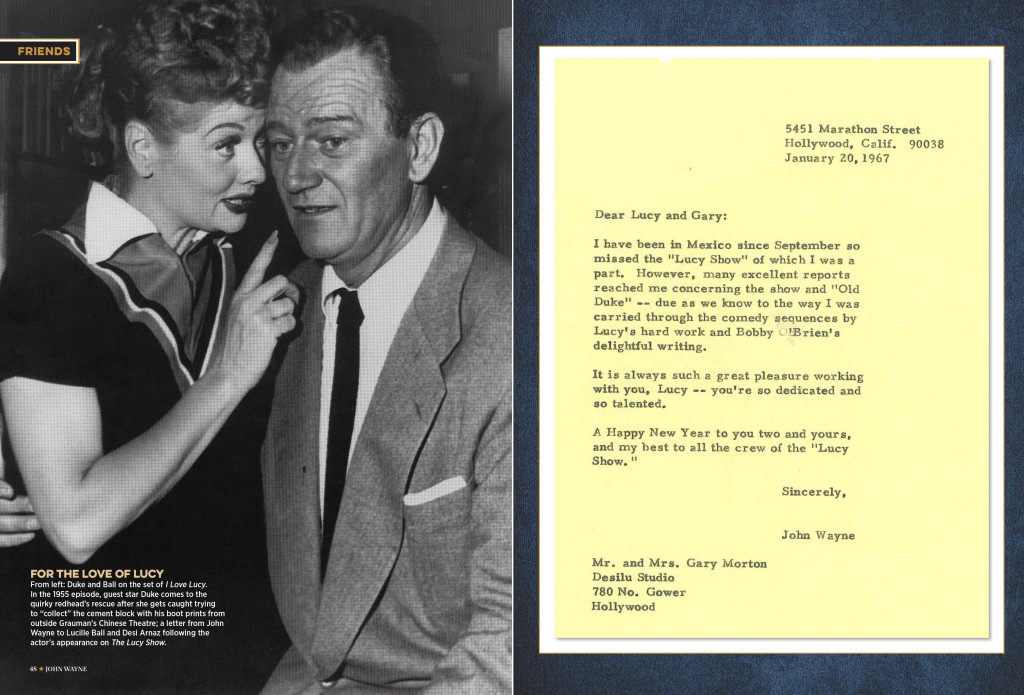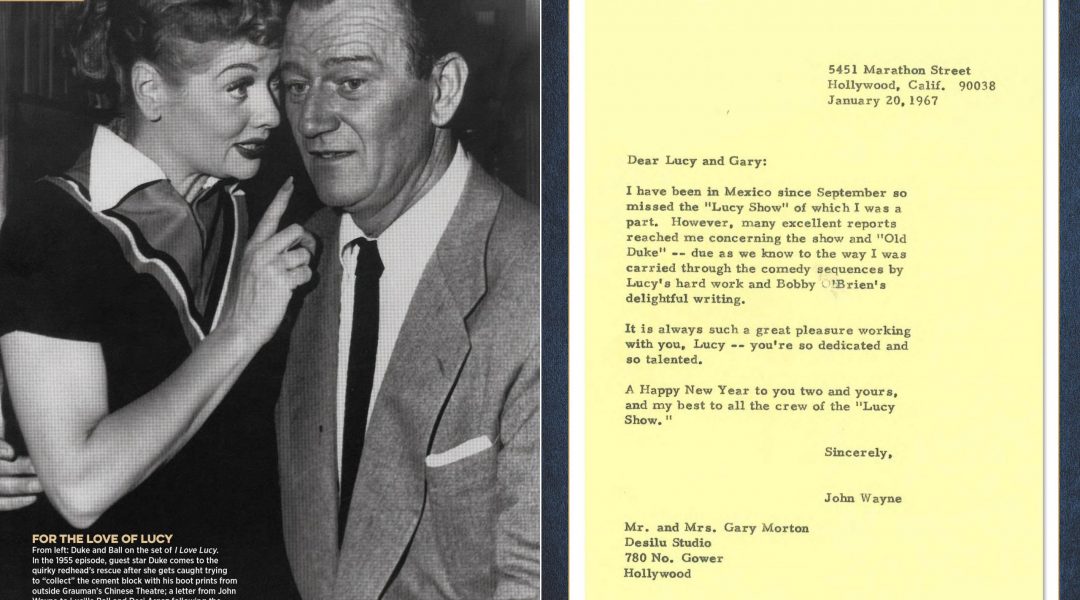
Devoted John Wayne fans will enjoy this celebratory volume.
Listen up, pilgrims: If you’ve been searching for a great Valentine’s Day present to give any John Wayne fan on your gift list, you need look no further than Duke: In His Own Words (Media Lab Books, $24.99), a collection of the iconic actor’s personal letters, telegrams, cards and memos.
Culled from the private archives of Wayne’s family, this treasure-trove of the late, great superstar’s blunt-spoken correspondence includes letters to friends, fans and family, as well as exchanges with costars, politicians, public figures, and troops in the field.
Among the book’s many highlights:
The Coach and The Duke
The decades-long correspondence between Wayne and director John Ford, his close friend and valued mentor, reflects the humor and affection that were hallmarks of the relationship between the men who referred to each other as “Duke” and “Coach.” In a letter dated December 7, 1955, “Coach” Ford tries to recruit Wayne for a role in an upcoming picture. But if Wayne can strike a better deal elsewhere for another project, Ford adds, “please be assured that I understand perfectly. After all, nothing ain’t never going to break up our friendship.” After Ford’s death in 1973, The Duke offered this heartfelt epitaph: “The man was my heart. There was a communication between us that not many men have. I have never been closer to any person in my life than I have been with [John Ford].”
Reaching Across the Aisle
Wayne, an outspoken conservative, supported — and frequently communicated with — Republicans ranging from Barry Goldwater to Ronald Reagan. But when Jimmy Carter won the 1976 election, The Duke sent a telegram to the Democratic victor: “Congratulations sir from one of the loyal opposition.” The newly-elected Carter responded in kind: “Your congratulations are indeed appreciated! I trust the only area in which we will find ourselves in opposition is that of Party loyalty. I will need your help in the coming years, and hope to have your support.” The two men continued to correspond during Carter’s presidency — and while Wayne often was critical, he remained respectful. When The Duke died in 1979, President Carter offered this admiring appraisal: “John Wayne was bigger than life... . He was a symbol of so many of the qualities that make America great.”
John Wanted Mary?
Perhaps the most surprising communiqué in the book is a confidential letter Wayne sent to producer Hal Wallis before the production of Rooster Cogburn, the 1975 sequel to True Grit. In the film, The Duke reprised his signature role as the title character alongside Katharine Hepburn as a preacher’s daughter seeking revenge for his father’s murder. “I can’t think of anything that would give me more of a thrill than working with Miss Hepburn,” Wayne wrote in the May 21, 1974, letter. Still, Wayne — then just five days short of his 67th birthday — had doubts about being cast with a costar his own age. (Hepburn had turned 67 two weeks earlier.) “To the people under 30 years old,” he wrote, “the combination won’t mean anything but two older people in a picture. Using someone like Mary Tyler Moore or another actress in her age group, with whom the audience can identify, would appeal more to the age group we are trying to sell.” Wayne eventually warmed to the casting, and Hepburn did indeed play the vengeful daughter. It should be noted, however, that Rooster Cogburn — or Rooster Cogburn (... and the Lady), as it was widely promoted — was something less than a box-office smash.













